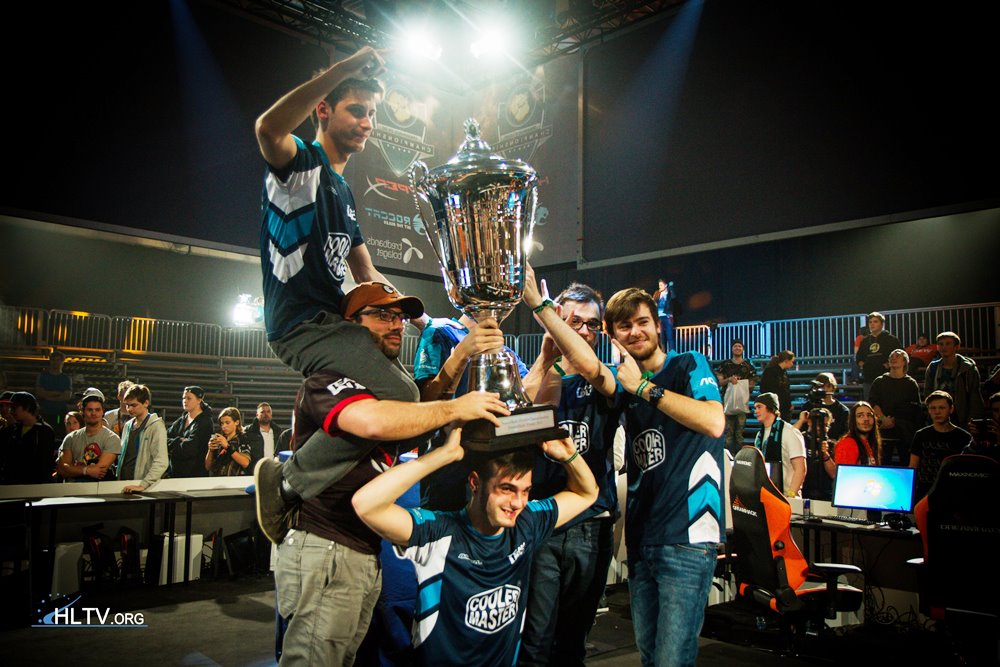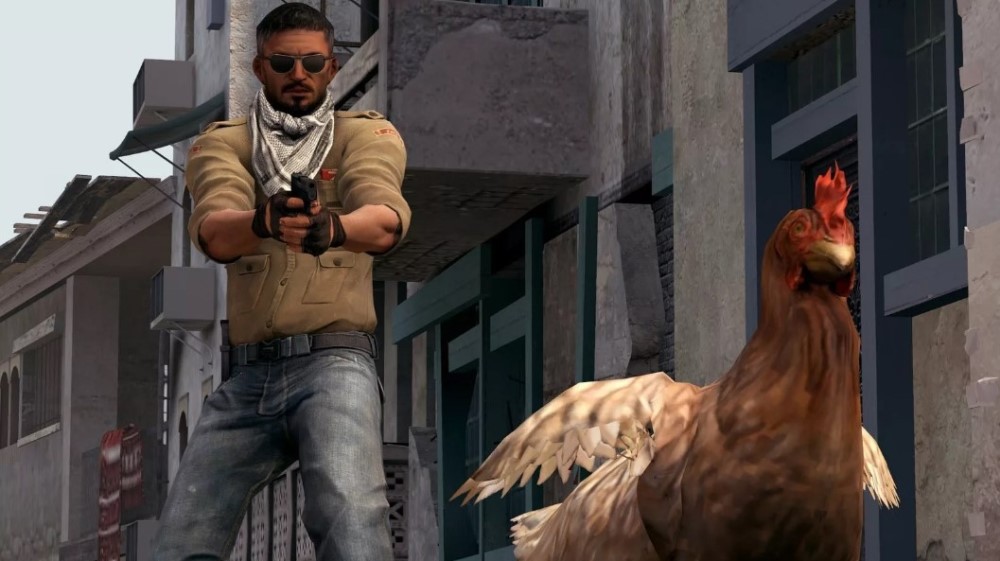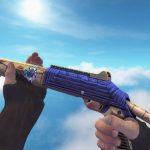
There have been a few strange or ridiculous moments in CS:GO tournaments.
Here are some examples:
- The Olofboost Incident (DreamHack Winter 2014): Perhaps one of the most infamous instances in the history of competitive CS:GO. Fnatic used an unexpected and arguably exploitative boost spot on Overpass to secure a comeback victory against LDLC. This sparked outrage and controversy in the community, ultimately leading to Fnatic forfeiting the tournament.
- KQLY’s VAC Ban (Prior to DreamHack Winter 2014): A few days before DreamHack Winter 2014, pro player KQLY was hit with a VAC (Valve Anti-Cheat) ban. He was immediately removed from his team, Titan, which also led to the team being disqualified from the tournament, causing a major uproar in the competitive scene.
- iBuyPower Match-Fixing Scandal (CEVO Season 5, 2014): iBuyPower, a top North American team, was found guilty of intentionally losing a match against NetCodeGuides to profit from bets placed on the match. This led to several players receiving lifetime bans from Valve-sanctioned events, a decision that still provokes discussion today.
- Oskarish’s Ghost Steps (ESL Polish Championship 2014): Oskarish seemingly knew the exact position of his enemies despite not having any information that would allow him to know their location. It was later found out that he was exploiting a bug which allowed him to hear enemy footsteps from any part of the map. His team was disqualified from the tournament as a result.
- Zeus’s Chicken Defusal (IEM Katowice 2018): In a match between NaVi and Quantum Bellator Fire, Zeus of NaVi ended up in a 1v1 situation and attempted to defuse the bomb, but a chicken blocked his path, delaying the defusal and leading to a round win for Quantum Bellator Fire. It was quite a comical moment but with serious implications in the match.
The Olofboost Incident (DreamHack Winter 2014)
The “Olofboost” incident, also known as “Boostgate”, occurred during the 2014 DreamHack Winter tournament, which was a major event for Counter-Strike: Global Offensive (CS:GO). The incident is named after Olof “olofmeister” Kajbjer Gustafsson, a player for the team Fnatic, and it’s one of the most controversial moments in CS:GO history.
Here’s a breakdown of what happened:
- The Match: The incident happened during a quarter-final match between Team LDLC (a French team) and Fnatic (a Swedish team). The map was Overpass, and LDLC was leading 12-3 at half-time.
- The Boost: Early in the second half, Fnatic began using an unusual boost spot (often referred to as “pixel-walking”), which allowed Olofmeister to see large parts of the map while being nearly invisible and invulnerable. With the aid of this boost, Fnatic was able to make an incredible comeback and win the match 16-13.
- The Controversy: LDLC protested to the tournament administrators, arguing that the boost spot was illegal according to the tournament rules. After a period of uncertainty and debate, the admins initially decided to replay the second half of the match. However, the community reaction was overwhelmingly negative, with many believing that the match should be forfeited by Fnatic.
- The Aftermath: The following day, Fnatic forfeited the rematch due to the heavy backlash from the community and their desire to save the spirit of competitive gaming. Thus, LDLC advanced to the semi-finals and eventually went on to win the tournament. The incident led to changes in the rules regarding pixel-walking and also resulted in changes to the Overpass map to prevent such boosts in the future.
The Olofboost incident is still remembered today due to the impact it had on the match, the tournament, and the broader rules and standards of CS:GO esports.
KQLY’s VAC Ban (Prior to DreamHack Winter 2014)
The VAC ban of Hovik “KQLY” Tovmassian, a professional CS:GO player, is one of the most significant moments in the history of the game. VAC (Valve Anti-Cheat) is a system designed to detect cheats installed on users’ computers.
In November 2014, just before the DreamHack Winter tournament, KQLY, who was a player for the French team Titan at the time, received a VAC ban. This indicated that he had been found to have used cheating software while playing CS:GO.
The aftermath of this ban was serious and impactful:
- Immediate Disqualification: Due to KQLY’s ban, Titan was disqualified from participating in the DreamHack Winter 2014 tournament. They had secured a spot in the competition, but the ban led to their immediate removal.
- Career Impact: KQLY’s professional career was largely ended by the ban. After a period of community backlash, he admitted to using a cheat for a week outside of professional play. However, the reputation damage was done and he was released from Titan. His opportunities to play in future professional tournaments were significantly diminished.
- Community Impact: The incident sparked a massive discussion within the community about cheating in professional play and its repercussions. It created a sense of paranoia about the potential prevalence of cheating at the top levels of the game.
- Long-term Consequences: Valve, the company behind CS:GO, took a stand against cheating that would influence future actions. Players who received VAC bans were barred from participating in Valve-sponsored events, sending a strong message to all professional players about the consequences of cheating.
KQLY had made attempts to return to the professional scene, but his VAC ban continued to be a major point of contention and controversy.
iBuyPower Match-Fixing Scandal (CEVO Season 5, 2014)
The iBuyPower match-fixing scandal is one of the most notorious incidents in the history of professional Counter-Strike: Global Offensive (CS:GO).
The incident took place in August 2014 during a match in CEVO Season 5. The North American team iBuyPower, who were heavy favorites, played against NetcodeGuides and unexpectedly lost 16-4. The manner of their loss raised suspicions, as their gameplay was riddled with inexplicable mistakes and a seeming lack of effort.
A few months later, in January 2015, evidence surfaced that suggested the iBuyPower players had intentionally thrown the match. An ex-girlfriend of one of the players published text messages that implicated the team in a match-fixing scheme. The scheme involved betting on the match outcome with valuable CS:GO weapon skins, which could then be sold for real money. Because they were such heavy favorites, a large number of these skins were placed against iBuyPower, which then greatly profited those in on the scheme when they lost.
Following an investigation, Valve, the company that owns CS:GO, banned seven people involved in the incident from all future Valve-sponsored events. The banned individuals included the iBuyPower players Sam “DaZeD” Marine, Braxton “swag” Pierce, Keven “AZK” Lariviere, and Joshua “steel” Nissan, as well as their coach, Derek “dboorn” Boorn, and the owner of NetcodeGuides, Casey Foster. The seventh person, Duc “cud” Pham, was involved in placing the bets.
This decision was significant as it essentially ended the careers of some of the most prominent North American CS:GO players at the time. The scandal has had long-lasting effects on the professional CS:GO scene and has led to an ongoing conversation about the severity of penalties for match-fixing, player rights, and the creation of player unions.
Despite appeals and some community support for leniency, Valve has not lifted these lifetime bans.
Oskarish’s Ghost Steps (ESL Polish Championship 2014)
The incident involving Mikołaj “oskarish” Okrasiński, a professional CS:GO player, known as the “Ghost Steps” occurred during the ESL Polish Championship in 2014.
In a match, oskarish appeared to have an uncanny ability to know exactly where his opponents were, even when they were moving silently or were in parts of the map where he couldn’t possibly have seen or heard them. This led to accusations of cheating, but the truth was something different.
Oskarish was actually exploiting a bug in the game that allowed him to hear enemy footsteps from anywhere on the map, regardless of his position. This is what gave him his seemingly supernatural knowledge of enemy positions.
After discovering this, the tournament organizers disqualified his team, INSHOCK, due to the unfair advantage that the bug provided. This incident led to significant community discussions about bugs, glitches, and what constitutes fair play in esports. Valve, the company behind CS:GO, was also prompted to fix this bug to prevent similar incidents from happening in the future.
The “Ghost Steps” incident is a good example of how minor bugs can have a significant impact in competitive esports and how seriously both the community and game developers take issues of fairness and integrity in competition.
Zeus’s Chicken Defusal (IEM Katowice 2018)

During the quarterfinals of IEM Katowice 2018, a rather comedic moment took place that involved a player named Daniil “Zeus” Teslenko and a digital chicken from the game CS:GO.
Zeus, playing for Natus Vincere (Na’Vi), found himself in a tense 1v1 situation against Kvik from the team Quantum Bellator Fire (QBF) on the map Inferno. With the bomb planted and time running out, Zeus was trying to defuse it to secure the round for his team.
As he moved towards the bomb, a chicken (an ambient creature in the game that does not impact gameplay and can roam freely around certain maps) moved in front of Zeus just as he was about to start defusing. As a result, Zeus accidentally hit the chicken instead of starting the defuse, causing a slight delay.
This delay, although only a fraction of a second, was just enough to prevent Zeus from defusing the bomb in time. The bomb exploded, and QBF won the round.
The moment has since been remembered as an example of how even the smallest, most unexpected factors can influence the outcome of a round in CS:GO. The chicken defusal incident shows how, despite the high stakes and intense concentration in esports, there can also be moments of unpredictability and humor.


